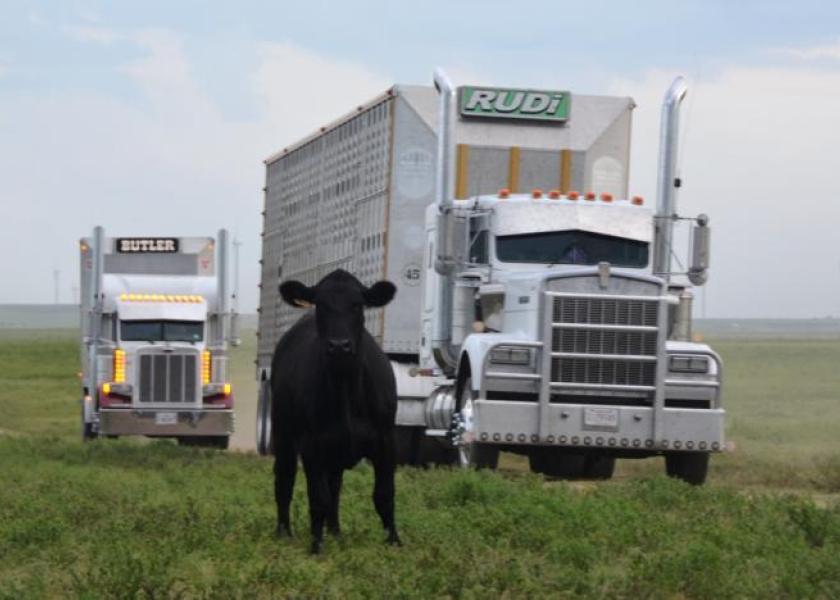USDA Investigation Report Accurate, Dopp Tells AgriTalk

While acknowledging high levels of anger and frustration among cattle producers driven by the coronavirus-driven price collapse this spring, Mark Dopp believes USDA’s recent report on cattle markets is accurate.
The report “did a good job of analyzing the facts and saying this (market reaction) is not terribly surprising,” Dopp told host Chip Flory on Friday’s AgriTalk. Dopp serves as general counsel and senior vice president of regulatory and scientific affairs for the North American Meat Institute (NAMI).
USDA’s Agricultural Marketing Service released on Wednesday its findings of an investigation into cattle market disruptions following last year’s Tyson Foods packing plant fire and this spring’s impact from the coronavirus pandemic. The 20-page report confirmed massive volatility to both the cash and futures markets yet found no wrong-doing on the part of any industry participants.
The report – Boxed Beef and Fed Cattle Price Spread Investigation – has drawn both praise and criticism from cattle industry stakeholders.
“The whole coronavirus event was obviously an unfortunate circumstance,” Dopp said. “It’s been a disaster for everyone, especially the producers. But when you remove 35% to 40% of the processing capacity – no, it’s not terribly surprising (results of the report).”
The impact on cattle prices, Dopp said, was due to the reduction in slaughter capacity while demand was still high for beef.
“The ‘beef shortage’ drove the boxed beef price up and we had that record spread between cash cattle prices and the boxed beef prices.”
Dopp said the Meat Institute is sympathetic to producers caught in the crosshairs of the sudden market shift but called the pandemic a “very difficult time for everybody.”
While the report detailed the market’s reaction to both the Tyson fire and the coronavirus pandemic, Dopp noted it also contains a handful of recommendations, some of which he called “no-brainers.” Those suggestions include searching for additional ways for producers to manage risk. But, Dopp also offered a word of caution.
“It seems that making dramatic changes in the midst of a pandemic may not be the most prudent course of action,” he said. One example is changes to regulations involving interstate commerce and how that affects beef products. “I think we need to make very sure there is nothing that can cause a question of the safety of the food supply. We just can’t have that issue.”
Asked specifically about Iowa Senator Chuck Grassley’s call for market transparency and for packers to purchase 50% of their weekly needs in the cash market, Dopp said it will be a “difficult needle to thread.”
Grassley’s proposal would have the “government, essentially directing how people procure livestock and the government picking winners and losers in the market. I don't think that's appropriate.”
Dopp said the cattle market has evolved toward the use of marketing agreement, “and that shift has been largely, as I understand that function, is what the producers have asked for. And for every mandated cash transaction, you may be telling somebody else who has a marketing agreement, ‘Sorry, I can't fulfill the agreement today’” because they have to buy cattle in the cash market.
Related stories:







